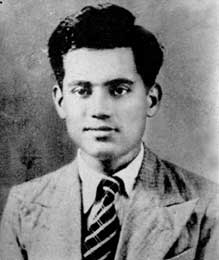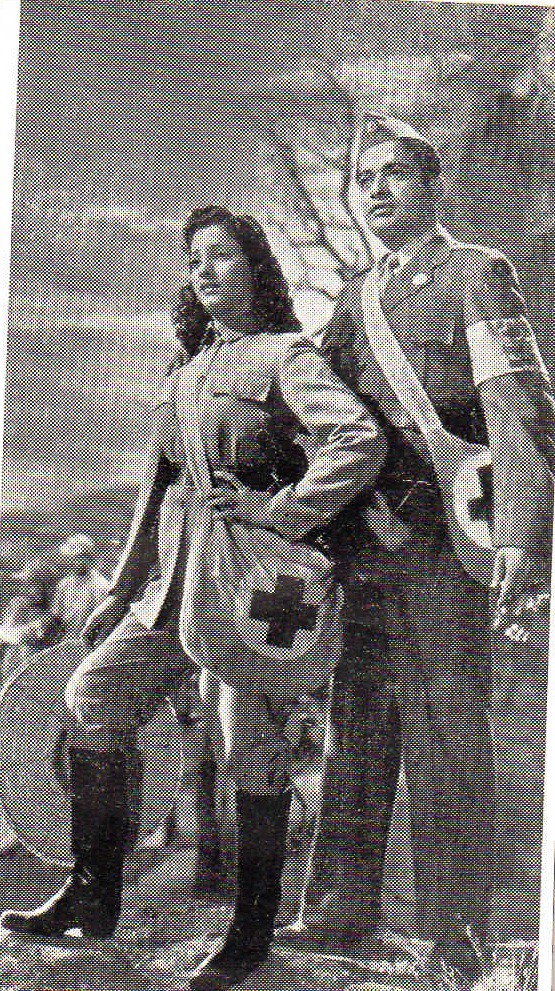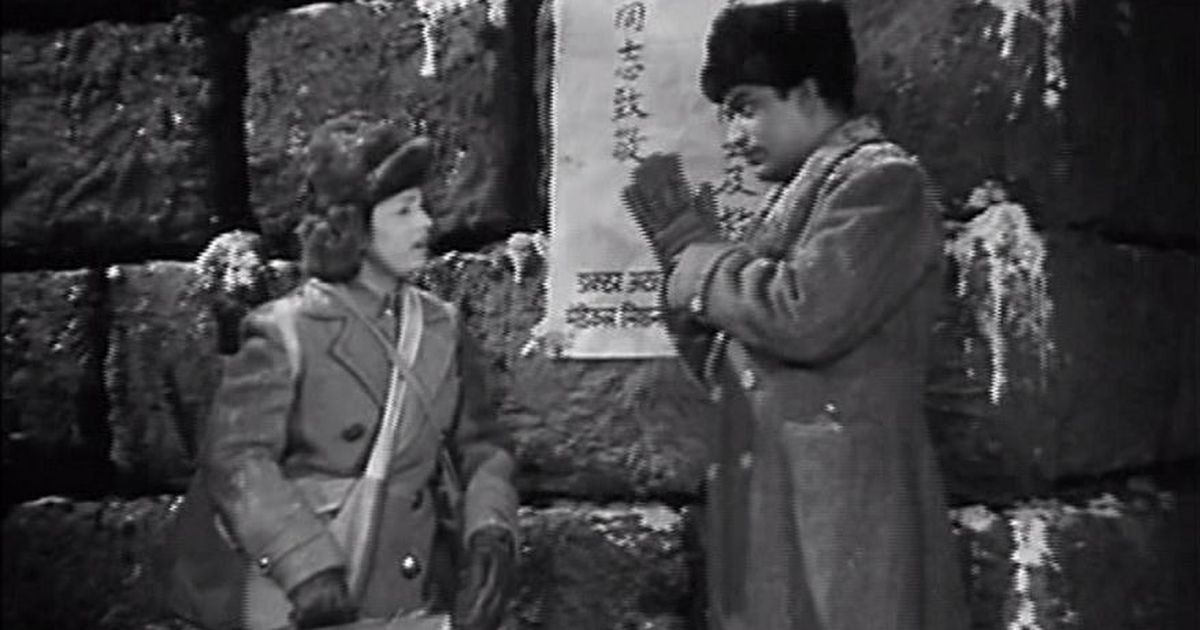At a time when China, epidemics and the selflessness of doctors is under constant discussion due to the coronavirus, Deepa Gahlot takes a look at a film that combined all these elements in a different way at a different time…
Dr. Kotnis Ki Amar Kahani (1946)
The story of Dr. Dwarkanath Kotnis is tragic yet uplifting, and it came out in fiction and film form quite soon after his death in 1942—fitting tribute to the man who went beyond the call of duty.
Khwaja Ahmed Abbas wrote a novel, And One Did Not Come Back, based on which V. Shantaram made a biopic, Dr. Kotnis Ki Amar Kahani, starring himself as the eponymous hero. (He happened to bear a striking resemblance to the real doctor.)

The film opens with a young Dwarka coming back to his hometown of Sholapur, where his father (Keshavrao Date), mother (Pratima Devi) and siblings eagerly await his return. While was away getting his medical degree, his father prepared a fully equipped clinic for him, but Dwarka had other plans. Inspired by the speech of a great leader (either Netaji Bose or Jawaharlal Nehru — not named), he decided to go to China with a medical mission, to help the Chinese during their war with Japan, that started in 1937. Chinese General Jhu De had requested India for medical help and a five-doctor team embarked on the long sea voyage to China.
Dr. Kotnis’s father gifts him a ring with a map of undivided India engraved on it, and tells him to make his country proud. (This was in the pre-Independence era, patriotism was legitimately major!)
The Indian medical team must have had a tough time in an alien land during a war, but a large chunk of the film looks more or less like a picnic. The costumes were vaguely Chinese and everybody spoke Hindi; in a particularly tense period, while the Japanese were pursuing a ragged Chinese army through the hills and forests, they found time to dance in coordinated clothes. Some of the lead actors were given a rushed Chinese get-up—mainly raised eyebrows—but the extras were left loose with their Indian appearance. Authenticity was not a big concern, technology was primitive, but there was a great story to tell and it was given the full Bollywood treatment with songs (Vasant Desai) and dances,
Promise fulfilled
Over time, the other four doctors leave to go back home, but Dr. Kotnis, fulfilling the promise made to his father, does not abandon his duty even when he gets a letter informing him of the older man’s death.
He befriends an old Chinese man, ‘Kaka’ Wong (Dewan Sharar), and a Chinese General Fong (Baburao Pendharkar), falls in love with a Chinese nurse, Guo Qinglan (played by Shantaram’s first wife, Jayashree) and marries her. While on the move, with the Japanese in pursuit, Qinglan gives birth to a son (the infant played by Shantaram and Jayashree’s daughter Rajshree). When faced with a terrible plague epidemic, Dr Kotnis injects infected discharge from lesions into his own body to study the progression of the disease, finds a cure and saves hundreds of lives. He also operates with rudimentary facilities and saves wounded soldiers. He dies just a few years later, at the age of 32, of epilepsy, but possibly because of exhaustion and his experiment during the plague epidemic.
Recording heroism
Seen today, the film seems excessively theatrical, but Shantaram gave a commendable performance, and made sure that at least Hindi cinema recorded the heroism of an Indian doctor, and the reverence of the Chinese for Dr Kotnis (called Ke Dihua by them). The Chinese built a statue, published books about him, and released postage stamps. A Chinese biopic titled Ke Di Hua Dai Fu was also made in 1982, though it does not seem to be available online. The Shantaram film is online in a shorter two-hour version. There was also an English version, The Journey of Dr Kotnis, for the foreign market, which is also inaccessible.
In real life, Qinglan remarried and lived to the ripe old age of 96 (she died in 2012); their son, named Yinhua (meaning India and China), however, died tragically young. She wrote a book, My Life with Kotnis, which could actually be the beginning of a fresh biopic should any filmmaker be so inclined.



